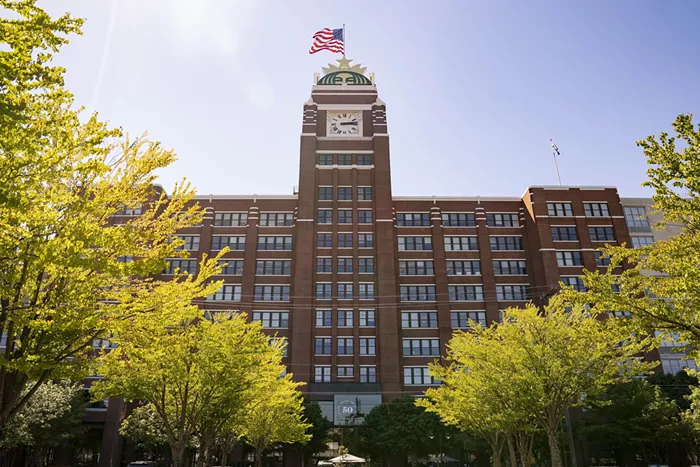This post was originally published on this site
Starbucks Workers United (SBWU) kicked off a nationwide strike after six months of trying to negotiate a fair contract with the company. To hit the company where it hurts, the union chose Red Cup Day, a major holiday promotional event and one of the biggest sales days of the year.
“The company has forced us into this fight,” said SBWU spokesperson Michelle Eisen at an online press conference.
More than 1,000 union baristas at 65 stores across 40 cities are striking. In Seattle, workers will picket outside stores in the U-District (4147 University Way NE) and on Queen Anne (1144 Elliott Ave. W) this morning.
At 4 p.m., they’ll rally outside the closed Starbucks Reserve Roastery on Capitol Hill. Eisen said the union is prepared to make this the “largest, longest strike in company history.” Despite warning management of the strike last week, the union said it has not heard from the company.
Workers are asking for higher wages, more hours, better staffing, and an end to the company’s unfair labor practices, hundreds of which remain unresolved.
Pittsburgh barista Dachi Spoltore said CEO Brian Niccol made $96 million in his first four months on the job. This summer, the company spent $81 million on a “glitzy” management conference in Las Vegas. His workers struggle to get enough hours to qualify for the benefits Starbucks brags about.
“The math just isn’t adding up,” Spoltore said.
Lynne Fox, president of Workers United, has negotiated hundreds of contracts in her career, but has never seen “an employer act with such reckless disregard” of labor laws. The company makes billions, but offers workers little, she said.
During initial bargaining talks, the union offered Starbucks a “menu” of bargaining options. Starbucks rejected them all, and told the public about a 65 percent pay increase the union never asked for. The company came up with that number by adding all the proposals into one sum, she said.
“[Starbucks] has no problem spending the money—they’re just not investing it in the right place,” Eisen said. “The investment needs to go to the workers who run these stores every day, whose labor brings in this revenue, the ones who create the relationships with the customers that keeps them coming back.”
